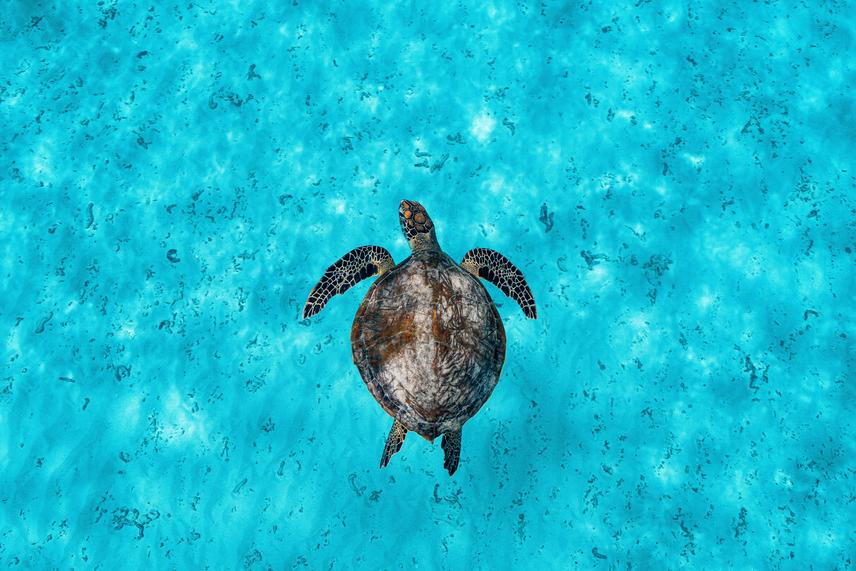Bushra Ali Salim Al Kindi
Marine tourism, particularly sea turtle viewing, plays a crucial role in Oman's economic diversification strategy. At the Ad Dimaniyyat Island Nature Reserve, high-density aggregations of juvenile endangered green turtles (Chelonia mydas) support a thriving ecotourism industry. In 2023 alone, over 50,000 tourists visited these islands. However, unregulated interactions—such as swimming near turtles, handling them, and getting too close—pose significant risks to their well-being. Research from other regions has shown that excessive tourism pressure can disrupt sea turtle behaviour, leading to changes in feeding patterns, habitat avoidance, and interference with critical life processes such as nesting. Furthermore, turtles exposed to high levels of human activity have been found to experience stress-related diseases, further endangering their health and survival.

A mesmerizing glimpse beneath the waves, showcasing the beauty of marine life. © Yahya Al-Thihli.
This study aims to comprehensively assess the impact of tourism on sea turtle behaviour and health. Observational methods will be used to monitor turtle abundance, feeding rates, time-activity budgets, and spatial distribution. Data will be collected through snorkelling-based observations and autonomous benthic cameras, allowing researchers to analyse turtle behaviour across three phases of tourist activity: before, during, and after visitation. These techniques will provide fine-scale insights into how turtles respond to varying levels of tourism pressure and whether they alter their behaviour in highly disturbed versus less-visited areas.
To assess the biological effects of tourism, blood sampling will be conducted to evaluate the prevalence of fibropapillomatosis (FP), a disease linked to stress-induced immunosuppression. A minimum of 40 turtles will undergo both non-invasive visual assessments and carefully administered blood sample collection. These samples will be analysed for stress hormone levels and other key physiological markers, offering a detailed understanding of how human interactions may impact turtle health and immune function.
By integrating ecological, behavioural, and physiological data, this research will provide evidence-based recommendations to guide sustainable tourism practices. The goal is to balance economic benefits with conservation efforts, ensuring the long-term sustainability of Oman's marine ecotourism sector while safeguarding the welfare of its endangered sea turtle populations.